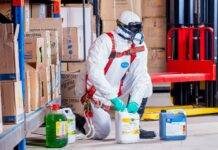
Chemical Safety Engineer Salary
Chemical safety engineering is a critical field ensuring the safe handling, use, and disposal of hazardous substances. As with any profession, understanding the salary dynamics is crucial for professionals considering this career path. In this article, we’ll delve into the factors affecting the salary of chemical safety engineers, the average salary range, and tips for maximizing earning potential.
What is a Chemical Safety Engineer?
Before diving into the salary aspect, let’s first understand the role of a chemical safety engineer. These professionals are responsible for developing and implementing safety protocols and procedures to prevent accidents and environmental harm associated with chemical processes. They work across various industries, including manufacturing, pharmaceuticals, research, and environmental protection.
Importance of Chemical Safety Engineers
The work of chemical safety engineers is invaluable for several reasons:
- Protecting the Environment: They ensure that chemical processes comply with environmental regulations to minimize pollution and ecological damage.
- Ensuring Workplace Safety: Chemical safety engineers establish safety protocols to protect workers from exposure to hazardous substances, reducing the risk of accidents and occupational illnesses.
Factors Affecting Chemical Safety Engineer Salary
Several factors influence the salary of chemical safety engineers:
- Education and Experience: Advanced degrees and years of experience typically result in higher salaries.
- Industry: Salaries may vary depending on the industry, with sectors like oil and gas offering higher compensation compared to academia.
- Geographic Location: Cost of living and demand for chemical safety engineers vary by region, impacting salary levels.
Average Salary of Chemical Safety Engineers
While specific salaries can vary significantly based on individual circumstances, understanding the average range provides a useful benchmark.
National Average
According to recent data, the national average salary for chemical safety engineers falls within the range of $70,000 to $100,000 per year.
Industry-Specific Averages
Salaries can vary widely across industries. For instance, chemical safety engineers working in the oil and gas sector may earn upwards of $120,000 annually, while those in government or non-profit organizations might earn closer to the national average.
Career Outlook for Chemical Safety Engineers
The demand for chemical safety engineers is expected to remain steady, with growth opportunities in various industries.
Job Growth Prospects
As industries continue to prioritize safety and environmental compliance, the need for skilled chemical safety engineers is projected to grow in line with overall industry demand.
Opportunities for Advancement
Experienced chemical safety engineers may advance to managerial or executive roles, overseeing safety programs at a broader organizational level.
Tips for Maximizing Salary as a Chemical Safety Engineer
To maximize earning potential in this field, consider the following strategies:
- Continued Education and Certifications: Pursuing advanced degrees or certifications in specialized areas of chemical safety can enhance your marketability and earning potential.
- Networking and Professional Development: Engage with professional organizations and attend industry conferences to stay updated on best practices and job opportunities.
Conclusion
Chemical safety engineers play a crucial role in safeguarding both human health and the environment. By understanding the factors influencing salary and implementing strategies for career advancement, professionals in this field can ensure they are fairly compensated for their expertise and contributions.
Chemical Hygiene in Laboratories: Promoting Safe Handling and Storage Practices
Chemical Handling: Storage and Personal Protective Equipment (PPE)
Chemical Exposure Monitoring: Air Sampling and Analysis
Chemical Spill Response: Containment and Cleanup
Hazardous Materials Transportation: Compliance and Emergency Response
FAQs
- What educational background is required to become a chemical safety engineer?
- While specific requirements may vary by employer, most chemical safety engineering positions require at least a bachelor’s degree in chemical engineering, environmental science, or a related field.
- Do chemical safety engineers work primarily in laboratories?
- While some chemical safety engineers may work in laboratory settings, many also work in manufacturing plants, research facilities, and regulatory agencies.
- Are there opportunities for remote work in chemical safety engineering?
- Remote work opportunities in this field may be limited, as much of the work involves on-site inspections and collaboration with colleagues.
- What industries typically offer the highest salaries for chemical safety engineers?
- Industries with high levels of risk, such as oil and gas, typically offer higher salaries for chemical safety engineers due to the specialized expertise required.
- How can I stay current with developments in the field of chemical safety engineering?
- Joining professional organizations, attending conferences, and participating in continuing education programs are excellent ways to stay updated on industry trends and best practices.
























